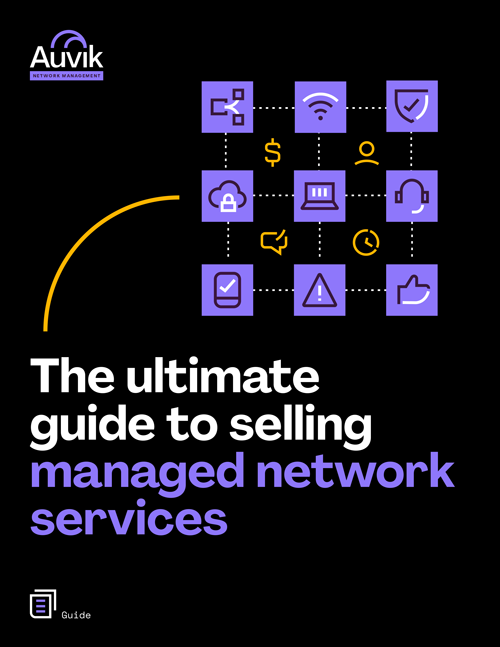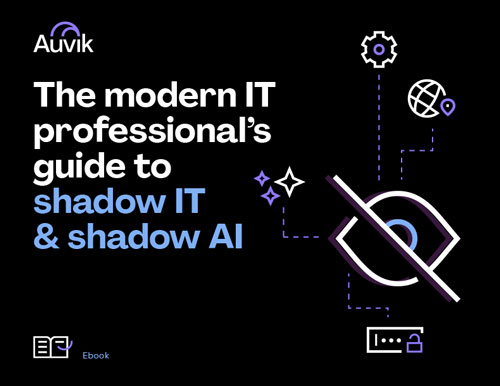It’s an old business adage that employees are a company’s greatest asset. Management author Curt Coffman refines the statement by pointing out that it’s the “truly engaged and talented people that come to work every day [that] are the real asset of your company.”
No matter how you say it, though, it’s a fact: Great employees can help your business thrive.
On the other hand, great employees can leave your MSP business vulnerable too—unless you’ve taken steps to protect yourself.
Wait, what? (Not what you expected me to say, is it?)
But it’s true, and perhaps you suspect it already. If you’ve ever wondered what would happen if one or more of your great employees decided to leave, then you’ve taken a peek into your MSP’s potentially deadly weak spot.
Here’s how MSP vulnerability is created
There are two primary scenarios that give your employees more power over your business than they should have.
1. Client accounts are supported by a single technician
Maybe you’re not a big company. Maybe some of your clients are on the smaller side and you don’t think they need more than one person to serve them. There are many reasons why one or more of your accounts may have fallen to a single person.
But single-tech support spells trouble for your business, and here’s why.
Your firm’s entire reputation with a client rests on the one person working on their account.
- Client loyalty can accrue to the technician rather than your company. If the person leaves, there’s a risk the client could follow.
- Working knowledge of the client’s network, credentials, key contacts, common issues, preferred methods of communicating, and so on are stuck in one person’s head.
- If the sole account person gets sick or goes on vacation, there’s an interruption to the quality and level of service to their client. It’s not a great brand experience and might even compromise your service level agreement.
- It’s stressful for an employee to be the only person who can handle requests from a client account. Because the employee cares about doing a good job, he may not take vacation days or may come into work when sick, all of which can lead to burn out.
- If the sole account person leaves the company, you suddenly have a massive knowledge gap that you’ll be scrambling to fill. And again, service quality is compromised while you do that scrambling.
- If you ever want to bring on new employees, training those recruits will mean sitting them down with one person for a knowledge transfer. That’s not scalable, and while the technician is training, he’s not doing client work.
- If you ever want to sell your managed services business, you’ll need clients and account information that are transferrable to the new owner.
2. Network credentials—both yours and your clients’—are easily accessible by all your employees
Wait a minute. Didn’t I just say that having credentials stuck in one person’s head is a problem? It is, but so is having credentials available to anyone at any time.
Let’s say you keep all your passwords in an open-access Google spreadsheet. (You might be shocked by how many MSPs do this.) What’s to keep an employee from copying the data and taking it with them when they leave?
“With just one password security breach, a disgruntled employee can ruin an MSP’s reputation and put the business in jeopardy with serious legal issues,” notes Passportal CEO Colin Knox.
With centrally stored and unencrypted data, it’s also possible for current employees who aren’t on a particular account to grab credentials they shouldn’t have. And short of changing every single password on every single device, it’s very difficult to cut off access when an employee leaves.
While sabotage from employees is relatively rare, it does happen. Some of our customers have seen it first-hand. And it’s a risk you simply can’t afford to take.
Here’s how to secure your MSP
The above scenarios leave your managed services business exposed in scary ways. The good news is that it’s relatively easy to close up those weak spots and stand your business on secure footing. There are really only two things you need to do.
Move to a team support model
Every account should have at least two assigned support technicians. If your firm is so small that you, as the owner, need to be the second technician, so be it.
With team support, you guarantee continuity of service to the client, the accrual of reputation and goodwill to the company (not individuals), and a scalable way forward.
Have a system for centrally and securely capturing client data
A good software system will automatically capture, document, and store all the details of a client’s network, from topology maps and inventory to configuration backups. New people assigned to the account should be able to log in and instantly understand what’s happening on the network. They’ll have all the data they need in front of them, without costly one-on-one knowledge transfer.
As well, if for some reason none of the primary techs are available, centrally stored data ensures there are no hiccups in your client service.
Your software system should also securely manage users and network credentials. Only the technicians supporting a particular client should have access to that company’s information. And should someone leave, access can be immediately cut off.
Great employees can be your company’s best and biggest asset. And with a few smart rules in place, you’ll be set to harness their abilities for the good of the whole company.
Your Guide to Selling Managed Network Services
Get templates for network assessment reports, presentations, pricing & more—designed just for MSPs.



